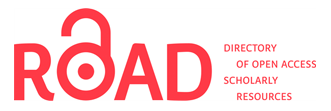Solar IoT Smart Garden
Keywords:
solar panel, solar charger controller, renewable energy, ESP8266 Microcontroller, Internet connectivity, mobile application, DHT11, Soil moisture sensore, ambient kight sensor, water level sensor, environmentalconditions, irriggation optimization, Blynk application, user interface, convenient, user-friendly, sustainablegardening, technologyoptimization, environmental impact reductionAbstract
When compared to traditional irrigation systems, the Solar IoT Smart Garden project offers a considerable improvement in sustainable farming. The primary energy source for the project is a 50-watt solar panel and a solar charger controller, which provides a clean and renewable means to power the system. Solar energy decreases the environmental impact of gardening by eliminating the need for fossil fuels. The ESP8266 microcontroller is at the heart of the device, allowing internet access and remote control via a smartphone application. The system collects data about environmental conditions in the garden using a range of sensors, including the DHT11 sensor for temperature and humidity, soil moisture sensor, ambient light sensor, and water level sensor. These sensors enable the system to continuously gather data and regulate irrigation based on the demands of the plants, ensuring that the appropriate amount of water is provided at the appropriate time. This is a big improvement over traditional irrigation methods, which frequently rely on a fixed timetable regardless of the needs of the plant. One of the most notable aspects of this project is the usage of the Blynk mobile application as the system's user interface. The Blynk app allows users to remotely monitor and regulate the garden's environmental elements, such as activating the irrigation system and checking water levels, soil moisture, temperature, humidity, and ambient light from sunshine. This makes gardening more user-friendly and convenient. To summaries, the Solar IoT Smart Garden project is a revolutionary approach to sustainable gardening that use cutting-edge technology to enhance plant development while lowering environmental impact.







